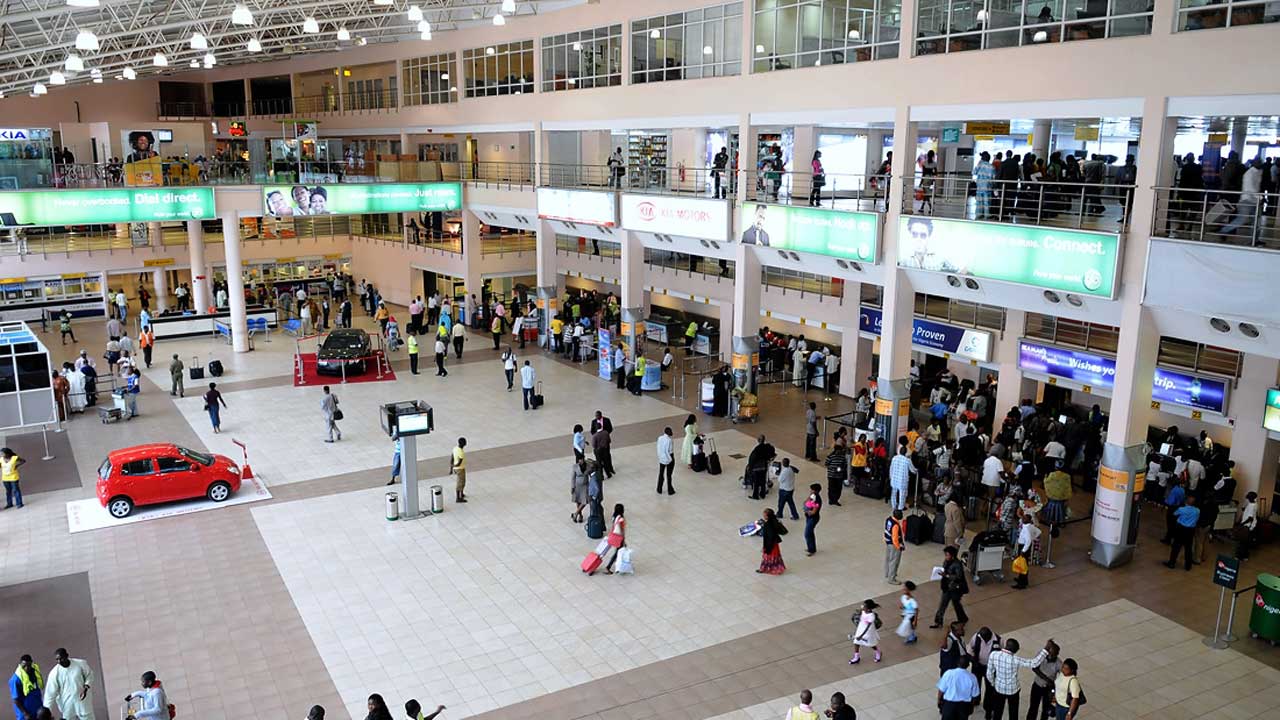- Abuja, Lagos New Terminals to Take Extra N5b
Minister of State for Aviation, Hadi Sirika, has faulted the locations of the new terminals simultaneously under construction at two of the busiest airports in the country, describing them as wrongly sited.
Sirika, who was short of describing the projects as a waste of fund, said the new terminal in Abuja alone would require the sum of N5billion to sort out the mess created by the error in location.
In a related development, more stakeholders have bought into the plan to have airports in the country concessioned to private investors for improved efficiency and profitability.
The minister, who spoke to stakeholders earlier in the week, explained that the current administration was almost at a dilemma on what to do with the terminals at Nnamdi Azikiwe International Airport, Abuja, and Murtala Muhammed International, Lagos.
This may not be unconnected with their obstructions of other facilities at the two airports. While the terminal in Abuja is directly blocking the control tower and fire station, that of Lagos is sitting on heavy cables that are servicing the entire area.
Recall that the last administration approved the construction of the two terminals, along with two others in a 2003 China and Nigeria loan deal, put at $500million. The projects are handled by the China Civil Engineering Construction Corporation (CCECC) and ought to have been delivered since March 2015.
Sirika, who was clarifying the status of the Lagos new terminal, said the terminal is part of a loan of $400 million from China and $100 million counterpart funding from Nigeria.
He said: “The Abuja terminal that is nearing completion is blocking the control tower and fire service station. Because it has been built, we need to knockdown the N3billion-worth of control tower and also knock down the fire station, which will cost about N2billion. Same problem with the Lagos terminal that is sitting on heavy cables. That is the situation we have found ourselves.
“If I have that $500 million, I will use it to develop the Murtala Muhammed Airport as hub of aviation in Nigeria and West Africa,” the minister said.
Also recall that the international terminal at MMIA, Lagos, had lately been experiencing power outages, which the Federal Airports Authority of Nigeria (FAAN) kept blaming on construction work at the nearby new terminal.
But while the government continues to mitigate effects of the terminals’ poor siting, more stakeholders, except the workers’ unions, have continued to queue behind efforts to reposition the aviation sector, primarily centred on airport concession.
Concession will concede the operation of the airport to a private entity under an agreement with the government.
Latest to endorse the plan are industry players like veteran pilot and Managing Director (MD) of Aeroconsult Capt. Dele Ore, MD of Med-View Airlines, Muneer Bankole and his counterpart at IRS Airlines, Ishiaku Rabiu Ishiaku.
Ore, who led the flurry of buy-ins, said that Sirika is now listening to what they had asked for years and quite commendable.
His words: “We can see that you (Minister) are looking at the recommendations that we have made in the past and are implementing it, but it is not being done totally and we urge you to go back and look at our recommendations and totally implement it.”
Bankole, who looked at it from the aspect of service provision, said all that the airlines wanted was good service and if it takes concession of facilities to achieve it, then so be it.
“In my capacity and on behalf of the Airline Operators of Nigeria (AON), all we want is service. I speak on behalf of my colleagues. Most of us have been out of the country and know what entails in terms of service delivery.
“We do not get that kind of service here because of the way things are. We need to let you all know that out there, service is provided and if it would take concessioning of airports for us to get the kind of service that would make us at par with others then by all means concession because the status quo is nothing to write home about,” he said.
Ishiaku, on his part, said that the concession plan was an opportunity for Nigeria, as a country, to finally get it right.
He noted that aviation has moved ahead of the country in leaps and bounds, adding that concession, to address the infrastructure deficit, are the way to go, as only then would the country take its place among the comity of aviation nations.
A Public Private Partnership (PPP) expert, Dr. Chukwuma Katchy, however, attributed the failure of previous concession agreements to lack of proper knowledge on how such agreements work.
Katchy observed that some of the concessionaires, who are in the private sector and saw the knowledge-gap on Nigerian side, were smart enough to write the terms of agreement that in most cases favoured them on the long run.

 Forex3 weeks ago
Forex3 weeks ago


 Naira2 weeks ago
Naira2 weeks ago
 Billionaire Watch2 weeks ago
Billionaire Watch2 weeks ago




 Naira2 weeks ago
Naira2 weeks ago




 Naira4 weeks ago
Naira4 weeks ago




 Naira2 weeks ago
Naira2 weeks ago


 Naira7 days ago
Naira7 days ago
 Banking Sector4 weeks ago
Banking Sector4 weeks ago






















